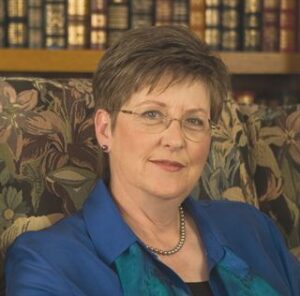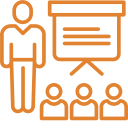Beliefs/Opinions
Throughout the day, we take in bits of data from the unceasing activity of our world and name the events we witness. As our life is an ever-changing kaleidoscope of events, we make quick decisions about whether what is happening to us is good or bad, right or wrong. Taking on the role of ever-vigilant ethics police, we decide whether the people with whom we interact are treating us with respect and dignity or not. And then, over time, we build up a library of incidents that provides an instant reference point for another person or group of people’s reputations, reminding us what we’re supposed to do. In this, it’s important to remember that it’s all a matter of perspective.
As I sat down to eat my nachos, I decided that my friend was not being thoughtful as she appropriated my cup holder. The low-level smolder started. Was I going to mention that she took my cup holder? Was I going to make a bit of a scene because of her rudeness? Or would I just ignore it?
Attitudes
We’ve all been chastened to “not cop an attitude,” but our attitudes often flow unbidden once the event is named. As I looked at the cup holder, I had the opportunity to be upset, angry, or petulant. I could play the martyr with a sigh and silently suffer under the injustice, or I could shrug it off and go on about my business. Our attitudes create energy fields that people can pick up at a subconscious level. Many times, we fail to monitor our attitudes because we don’t think that anyone notices – except someone always does.
As the game got underway, having finished the snacks, I pulled out my clear Bronco bag from under the seat and got out my water bottle. My friend looked at me and said, “Oh. I didn’t know you got your own water. I put the rest of my water in your cup holder for you.”
Behaviors
And then we choose to act. Fortunately, I had decided not to say anything about the cup holder but just pull out my water bottle and hold it while watching the game. That behavior triggered the explanation and the resolution of tension.
I must confess, I felt a bit silly. I know my friend is a kind person, but she also lives by herself, which sometimes leads to a narrow window of awareness. The low-level upset from what I had labeled an unreflective micro-aggression dissolved into a micro-misunderstanding and resolved into an expression of care – it’s all a matter of perspective.
This tiny incident that was cleared up in under twenty minutes is a simple example of the multitudes of tiny upsets that we face during the day. Each of us has a set of values we consider important. And, because we each have a personal moral compass, we judge our own behaviors and those of others according to our definition of what particular actions count for being ethical. If someone does not live up to our expectations, we label their actions as micro-aggressions (assuming the behavior was intentional) or micro-misunderstandings (assuming the behavior was unintentional).
The opportunity for ethical growth is to learn to use perspective and be mindful before reacting rather than responding from our unreflective habits. We begin with ethical awareness, recognizing people have different ethical perspectives. The EthicsGame assessment called the Ethical Lens Inventory™ helps people discover their own ethical identity and begin to understand the ethical perspectives of others.
And then, we develop ethical agility as we learn how to bring our values into sync with the values of others. We can begin by being open to the idea that people might have different beliefs and opinions about what behaviors count for living according to their values and are the best expression of themselves. The Values-in-Sync Cards™ help strengthen this skill. Whether a friendship, a volunteer organization, or our workplace, the opportunity is to choose to be mindful and presume that the upset is caused by a micro-misunderstanding.
Finally, with ethical maturity, we learn to habitually adopt a non-judgmental starting point as we are willing to change our beliefs, attitudes, and behaviors to create a context to harmoniously resolve interpersonal conflict. Learning to resolve the values in tension requires awareness and practice. The webinar, Values-in-Sync: Strategies for Resolving Workplace Tension, will provide helpful hints on how to create a non-toxic, supportive culture.
Fortunately, I remembered to follow my own advice. I shifted my beliefs, had a better perspective, adjusted my attitude, and settled in to enjoy an opening game blowout. Go Broncos!
















